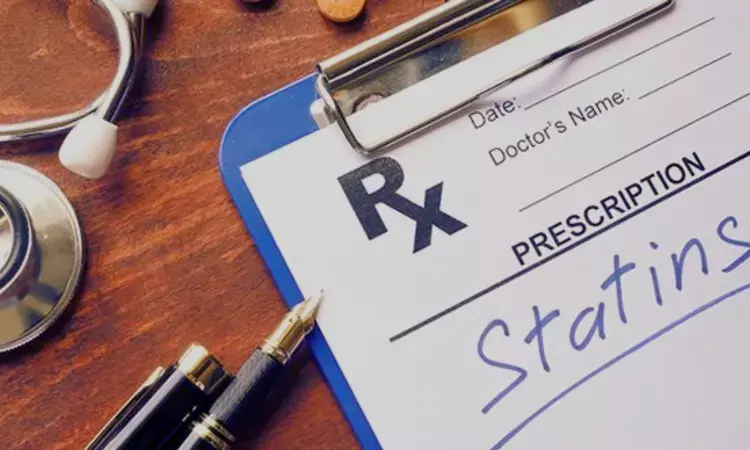- Home
- Medical news & Guidelines
- Anesthesiology
- Cardiology and CTVS
- Critical Care
- Dentistry
- Dermatology
- Diabetes and Endocrinology
- ENT
- Gastroenterology
- Medicine
- Nephrology
- Neurology
- Obstretics-Gynaecology
- Oncology
- Ophthalmology
- Orthopaedics
- Pediatrics-Neonatology
- Psychiatry
- Pulmonology
- Radiology
- Surgery
- Urology
- Laboratory Medicine
- Diet
- Nursing
- Paramedical
- Physiotherapy
- Health news
- Fact Check
- Bone Health Fact Check
- Brain Health Fact Check
- Cancer Related Fact Check
- Child Care Fact Check
- Dental and oral health fact check
- Diabetes and metabolic health fact check
- Diet and Nutrition Fact Check
- Eye and ENT Care Fact Check
- Fitness fact check
- Gut health fact check
- Heart health fact check
- Kidney health fact check
- Medical education fact check
- Men's health fact check
- Respiratory fact check
- Skin and hair care fact check
- Vaccine and Immunization fact check
- Women's health fact check
- AYUSH
- State News
- Andaman and Nicobar Islands
- Andhra Pradesh
- Arunachal Pradesh
- Assam
- Bihar
- Chandigarh
- Chattisgarh
- Dadra and Nagar Haveli
- Daman and Diu
- Delhi
- Goa
- Gujarat
- Haryana
- Himachal Pradesh
- Jammu & Kashmir
- Jharkhand
- Karnataka
- Kerala
- Ladakh
- Lakshadweep
- Madhya Pradesh
- Maharashtra
- Manipur
- Meghalaya
- Mizoram
- Nagaland
- Odisha
- Puducherry
- Punjab
- Rajasthan
- Sikkim
- Tamil Nadu
- Telangana
- Tripura
- Uttar Pradesh
- Uttrakhand
- West Bengal
- Medical Education
- Industry
Statins may reduce risk of early vascular events in patients with first-ever ischemic stroke with low LDL-C levels

Further, the study showed that about three‐quarters of the patients with first‐ever ischemic stroke with baseline LDL-C levels <70 mg/dL received in‐hospital statin treatment. The findings were published in the Journal of the American Heart Association on September 8, 2023.
Increased LDL-C levels raise the risk of vascular events and stroke. Lipid‐lowering therapy using statins could lower the risk of vascular events and stroke recurrence. A meta-analysis of 26 statin trials showed that further reductions in LDL‐C levels further lowered the risk of vascular events, which was consistent across baseline LDL-C levels.
Most of the trials enrolled patients with CVD (cardiovascular disease), but only a few patients had acute ischemic stroke and low LDL-C levels (<70 mg/dL). Also, previous studies have reported conflicting results, which revealed no evidence of the benefits of LDL‐C reduction in patients with baseline LDL‐C levels <66 mg/dL or more intensive LDL‐C lowering (versus less intensive LDL‐C lowering) among patients with baseline LDL‐C levels <100 mg/dL.
Therefore, Joon‐Tae Kim, Chonnam National University Hospital, Gwangju, Korea, and colleagues aimed to investigate whether early statin treatment could reduce the risk of early vascular events in patients with first‐ever ischemic stroke with baseline LDL‐C levels <70 mg/dL.
The study was an analysis of a multicenter, prospective, nationwide registry of consecutive patients with first-ever acute ischemic stroke with baseline LDL-C levels <70 mg/dL and without statin pretreatment. To control for imbalance in baseline characteristics, an inverse probability of treatment weights method was applied.
The primary outcome of the study was determined as a composite of stroke (either ischemic or hemorrhagic), myocardial infarction, and all-cause mortality within 3 months. An analysis was done of 2850 patients (age, 69.5±13.4 years; 63.5% men). In‐hospital statin treatment was used for 74.2% of patients.
The study led to the following findings:
- The primary composite outcome within 3 months occurred in 21.5% of patients in the nonstatin group and 6.7% of patients in the statin group, but the rates of stroke (2.65% versus 2.33%), hemorrhagic stroke (0.16% versus 0.10%), and myocardial infarction (0.73% versus 0.19%) were not significantly different between the 2 groups.
- After the inverse probability of treatment weighting analysis, the primary composite outcome was significantly reduced in patients with statin therapy (weighted hazard ratio [HR], 0.54).
- Statin treatment did not increase the risk of hemorrhagic stroke (weighted HR, 1.11).
"The results showed that early statin treatment lowered the risk of 3‐month composite stroke, all‐cause death, and myocardial infarction but did not alter stroke recurrence risk in patients with first‐ever ischemic stroke with baseline LDL‐C levels <70 mg/dL," the researchers wrote.
"Further study to confirm the results would be warranted for patients with acute ischemic stroke," they concluded.
Reference:
Kim JT, Lee JS, Kim BJ, Kang J, Lee KJ, Park JM, Kang K, Lee SJ, Kim JG, Cha JK, Kim DH, Park TH, Lee K, Lee J, Hong KS, Cho YJ, Park HK, Lee BC, Yu KH, Oh MS, Kim DE, Ryu WS, Choi JC, Kwon JH, Kim WJ, Shin DI, Yum KS, Sohn SI, Hong JH, Lee SH, Park MS, Choi KH, Lee J, Park KY, Bae HJ. Statin Treatment in Patients With Stroke With Low-Density Lipoprotein Cholesterol Levels Below 70 mg/dL. J Am Heart Assoc. 2023 Sep 19;12(18):e030738. doi: 10.1161/JAHA.123.030738. Epub 2023 Sep 8. PMID: 37681519.
Dr Kamal Kant Kohli-MBBS, DTCD- a chest specialist with more than 30 years of practice and a flair for writing clinical articles, Dr Kamal Kant Kohli joined Medical Dialogues as a Chief Editor of Medical News. Besides writing articles, as an editor, he proofreads and verifies all the medical content published on Medical Dialogues including those coming from journals, studies,medical conferences,guidelines etc. Email: drkohli@medicaldialogues.in. Contact no. 011-43720751


